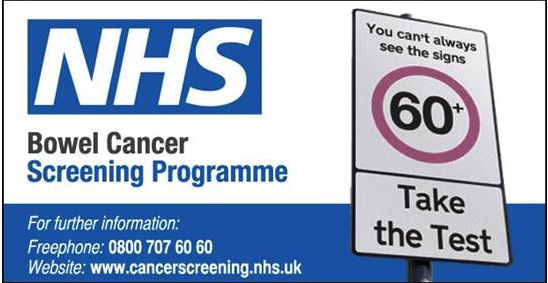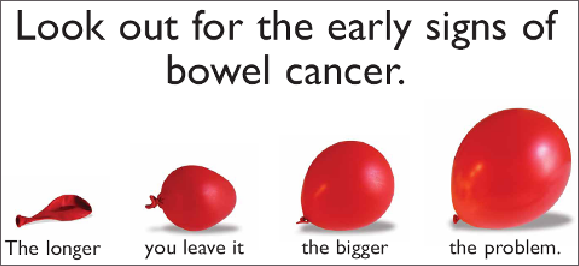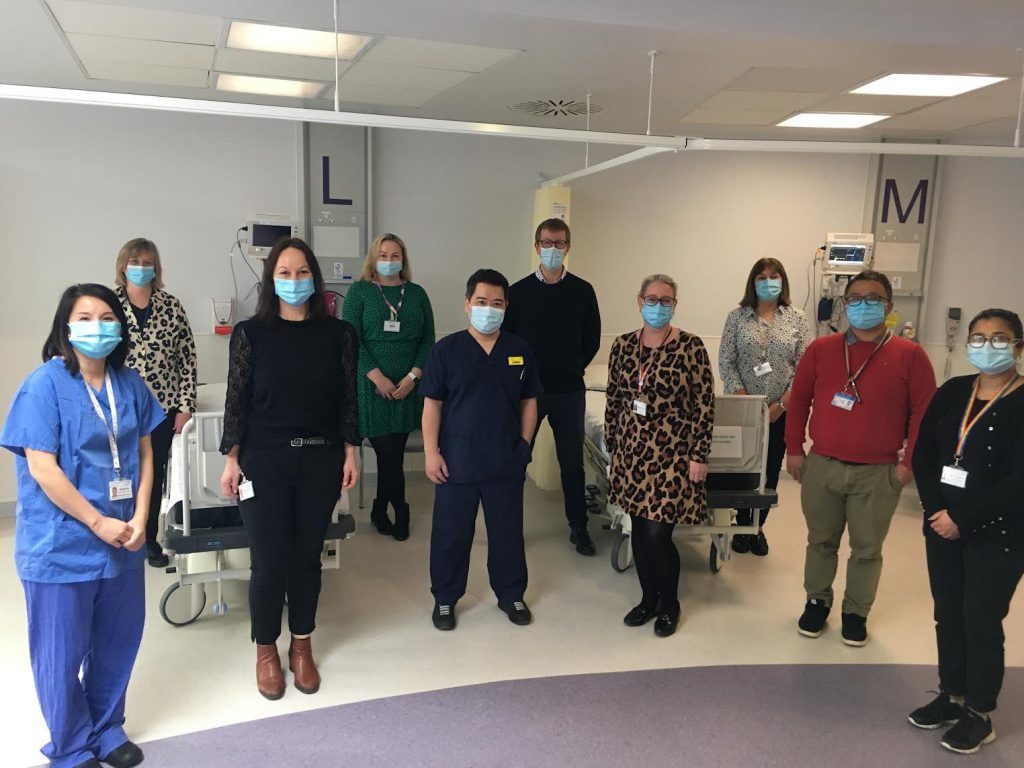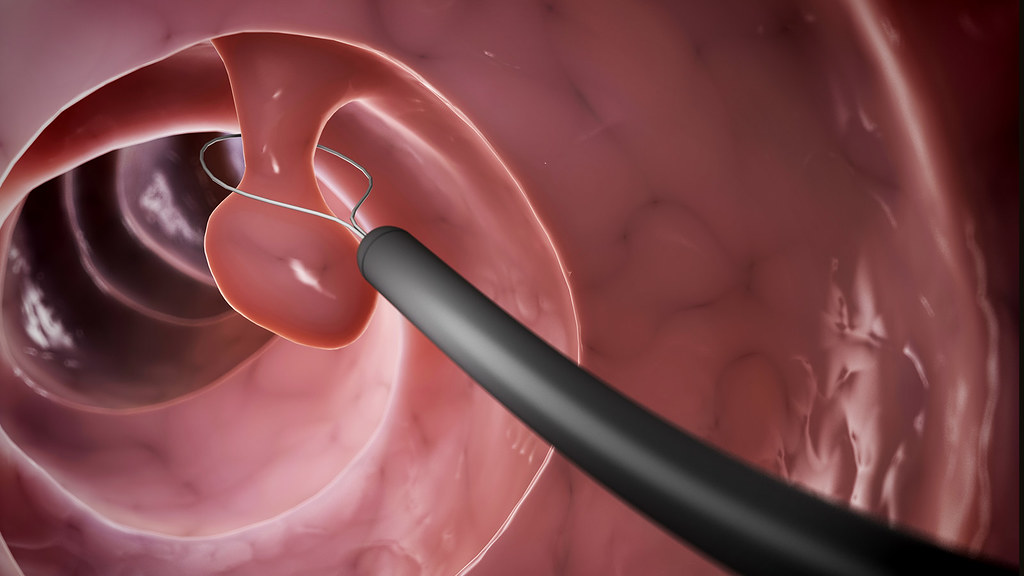 Abraham Lincoln
If given the truth, the people can be depended upon to meet any national crisis...
Abraham Lincoln
If given the truth, the people can be depended upon to meet any national crisis...
 Guildford news...
for Guildford people, brought to you by Guildford reporters - Guildford's own news service
Guildford news...
for Guildford people, brought to you by Guildford reporters - Guildford's own news service
Royal Surrey Now Screening More People for Bowel Cancer
Published on: 27 Apr, 2022
Updated on: 29 Apr, 2022
An extra 25,000 people living in Surrey, West Sussex and Hampshire borders have been able to participate in bowel cancer screening over the last year thanks to the Surrey Bowel Cancer Screening Centre.
The centre, which is hosted at Royal Surrey NHS Foundation Trust in Guildford is the “Southern Hub”, one of five Hubs in the English NHS Bowel Cancer Screening Programme.
The Southern Hub provides a service to the population of NHS England South Regional Team in partnership with 18 Screening Centres and approximately 1,700 General Practices (GPs).
The Surrey centre was one of the first in England to go live with testing for 56-year-olds and achieved this in May 2021 despite the impact of the Covid-19 pandemic.
 Previously, screening was only offered to people aged between 60 to 74 years of age.
Previously, screening was only offered to people aged between 60 to 74 years of age.
Nearly 43,000 people are diagnosed with bowel cancer in the UK each year, with 16,500 deaths annually, making it one of the most common cancers in England. It mostly affects those aged over 60.
There are ambitious plans over the next four years by the trust to lower the screening age further to those aged over 50 years.
Nationally the programme has invited almost one million people to participate. Uptake is just under 45 per cent, a figure the clinicians are hoping to improve.
The centre has been able to increase bowel cancer screening services thanks to a huge effort to restart screening after the disruption of the initial wave of the pandemic in 2020. In March that year the Covid-19 pandemic saw many clinical staff redeployed to other hospital roles.
Then in May, as the first wave of Covid subsided, a core team from Royal Surrey comprising a programme manager, two specialist lead screening practitioners, two screening colonoscopists and administrative support worked tirelessly to clear the backlog and re-start screening invitations at an enhanced rate.
The Surrey Centre is the largest in England and successfully met the government’s two-week target for screening patient referrals in 2021 and continues to do so. Over 2,500 people who tested “positive” from a home-test sample were invited in last year for further investigation and consultation.
Michelle Collins programme manager from the Royal Surrey said: “The programme and our team provide this service to people who likely have no symptoms and would not expect their test kit to return a positive result. The team then assess them for suitability to progress through the programme and provide education on what to expect and what the positive test kit could mean.
“As research has shown, if cancer is detected early it is likely more treatable and more survivable.
“The programme does not only detect cancer but removes polyps that could have the potential to progress over future years, thereby preventing future cancers. I am proud to be working in this national programme with an incredible team who have worked tirelessly to continue to provide the service during the pandemic.”
Bowel screening uses a test to detect invisible blood in the stools and participants with a certain level of blood are invited for a camera test called colonoscopy. Around 8-10 per cent of people who have a colonoscopy through screening are found to have cancer and the key impact of the programme is catching these cancers at an earlier stage with a much better chance of successful treatment.
In 2021, 127 people were diagnosed as having bowel cancer by the Surrey team. In addition, over 55 per cent of participants will have benign, but pre-malignant, polyps found and removed adding a preventative element to the programme.
All this has been possible due to the commitment, skill and expertise of the Surrey Bowel Cancer screening team and the endoscopy providers they utilise.
John Stebbing, chief of service for Division of Surgery at Royal Surrey NHS Foundation Trust and clinical director of Surrey Bowel Cancer Screening Centre, is a consultant surgeon and has played a key part in helping reduce the backlog of appointments, ensuring patients are seen in good time.
He said: “This period of the pandemic has been the most challenging in my 30-year career. The key to our achievement in seeing all our patients has been cohesiveness and mutual support across the team. Every one of us had a role to play and we all shared the same vision which was to get back in touch with our patients and treat people.”
Recent Articles
- Guildford Institute’s Crowdfunding Project for Accessible Toilet in its New Community and Wellbeing Centre
- Letter: Guildford – Another Opportunity Missed?
- Letter: GBC’s Corporate Strategy – Where Is the Ambition?
- My Memories of John Mayall at a Ground-breaking Gig in Guildford Nearly Six Decades Ago
- Westborough HMO Plans ‘Losing the Heart of the Street’ Says Resident
- College Invests to Boost Surrey’s Economy and Close Digital Skills Gap
- Community Lottery Brings Big Wins for Local Charities
- GBC Housing Plan Promises ‘A Vibrant Urban Neighbourhood’ Near Town Centre
- Hospital Pillows ‘Shortage’ at the Royal Surrey
- Updated: Caravans Set Up Camp at Ash Manor School


Search in Site
Media Gallery
Dragon Interview: Local Artist Leaves Her Mark At One of England’s Most Historic Buildings
January 21, 2023 / No Comment / Read MoreDragon Interview: Lib Dem Planning Chair: ‘Current Policy Doesn’t Work for Local People’
January 19, 2023 / No Comment / Read MoreA3 Tunnel in Guildford ‘Necessary’ for New Homes, Says Guildford’s MP
January 10, 2023 / No Comment / Read More‘Madness’ for London Road Scheme to Go Ahead Against ‘Huge Opposition’, Says SCC Leader
January 6, 2023 / No Comment / Read MoreCouncillor’s Son Starts Campaign for More Consultation on North Street Plan
December 30, 2022 / No Comment / Read MoreCounty Council Climbs Down Over London Road Works – Further ‘Engagement’ Period Announced
December 14, 2022 / No Comment / Read MoreDragon Interview: GBC Reaction to the Government’s Expected Decision to Relax Housing Targets
December 7, 2022 / No Comment / Read MoreHow Can Our Town Centre Businesses Recover? Watch the Shop Front Debate
May 18, 2020 / No Comment / Read More











Recent Comments